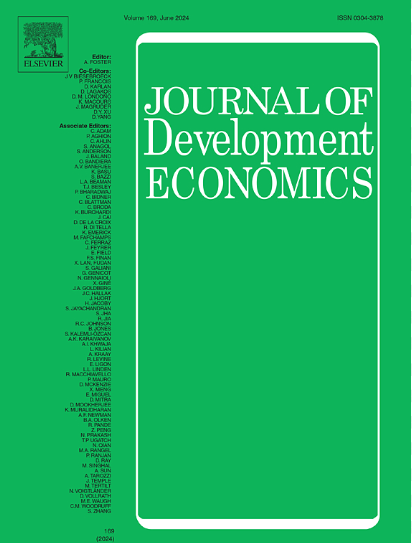政府对私营部门投资的配置影响
IF 4.6
1区 经济学
Q1 ECONOMICS
引用次数: 0
摘要
在中国,国有企业对私营企业进行少数股权投资。我们使用具有金融摩擦和特殊生产率的两部门DSGE模型研究了此类政府投资的配置含义。在我们的模型中,私人业主比国有业主生产率更高,但面临更严格的财务约束。国有企业的股权投资减轻了私营企业的财务约束,但抑制了其自身的生产率,这与中国企业层面的数据一致。在这种情况下,只有生产率足够高的私人所有者才会接受这种投资,而生产率足够低的国有所有者才会进行这种投资。因此,这种政府投资的扩大改善了各部门内部和跨部门的资本配置。我们的分析表明,金融自由化,包括放开利率控制和减少部门之间的贷款与价值差距,刺激了私人所有者对此类政府投资的需求,但阻碍了国有所有者进行此类投资,从而对总生产率产生了模糊的影响。本文章由计算机程序翻译,如有差异,请以英文原文为准。
Allocative implications of government investment in private sector
In China, state owners make minority equity investments in private firms. We study the allocative implications of such government investments using a two-sector DSGE model with financial friction and idiosyncratic productivities. In our model, private owners are more productive than state owners but face tighter financial constraints. Equity investment by a state owner alleviates the private owner’s financial constraint but dampens its own productivity, consistent with Chinese firm-level data. Under this setup, only private owners with sufficiently high productivity accept such investment, while only state owners with sufficiently low productivity make such investment. As a result, expansion of such government investment improves capital allocation within each sector and across sectors. Our analysis shows that financial liberalizations, including liberalizing interest-rate controls and reducing the loan-to-value gap between sectors, stimulate private owners’ demand for such government investment but discourage state owners from making it, thus generating an ambiguous effect on aggregate productivity.
求助全文
通过发布文献求助,成功后即可免费获取论文全文。
去求助
来源期刊

Journal of Development Economics
ECONOMICS-
CiteScore
8.30
自引率
4.00%
发文量
126
审稿时长
72 days
期刊介绍:
The Journal of Development Economics publishes papers relating to all aspects of economic development - from immediate policy concerns to structural problems of underdevelopment. The emphasis is on quantitative or analytical work, which is relevant as well as intellectually stimulating.
 求助内容:
求助内容: 应助结果提醒方式:
应助结果提醒方式:


